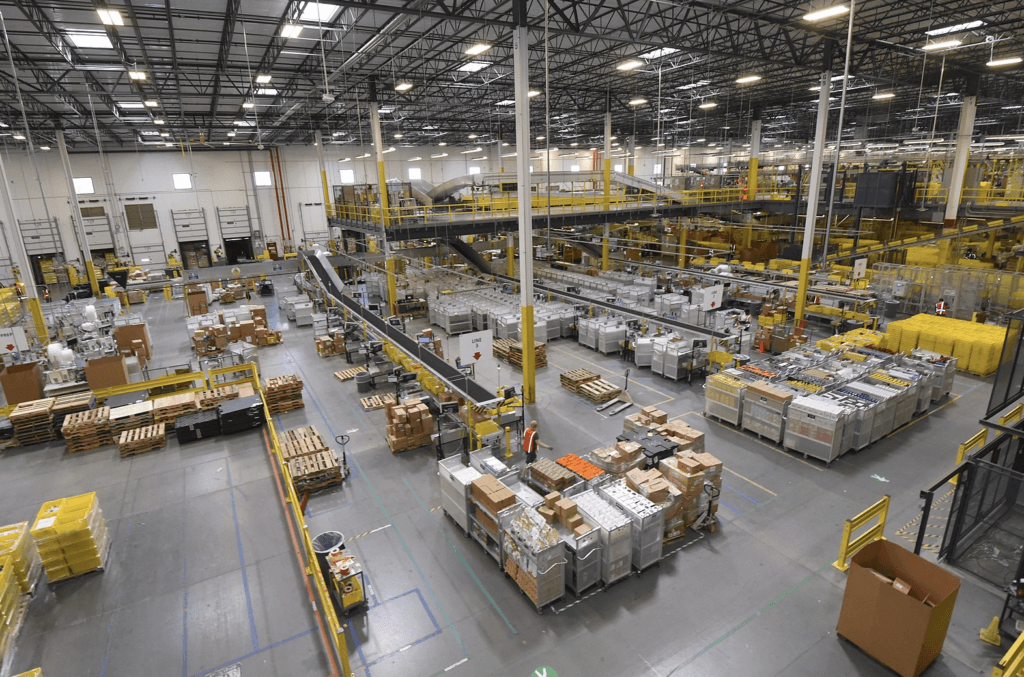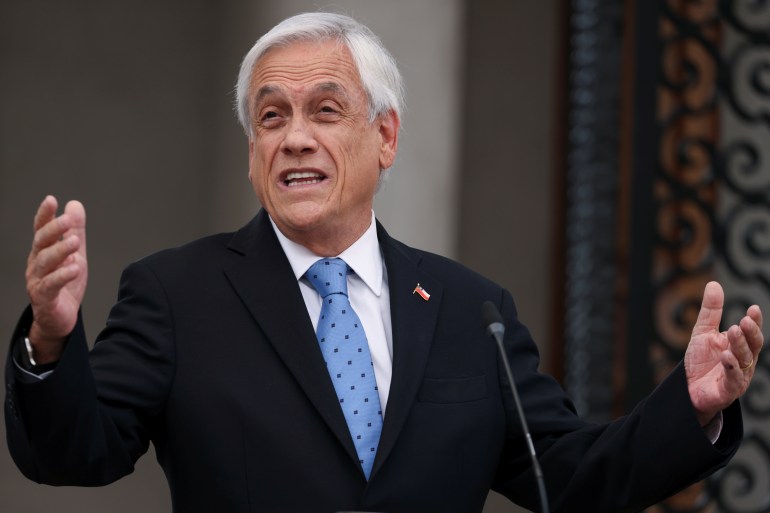"We cannot look the other way, as the products we build are used to deny Palestinians their basic rights, force Palestinians out of their homes and attack Palestinians in the Gaza Strip – actions that have prompted war crime investigations by the international criminal court."
MONDOWEISS
“We envision a future where technology brings people together and makes life better for everyone. To build that brighter future, the companies we work for need to stop contracting with any and all militarized organizations in the US and beyond. These contracts harm the communities of technology workers and users alike. While we publicly promise to uplift and assist our users, contracts such as these secretly facilitate the surveillance and targeting of those same users.”
The letter was published on the same day that Irish author Sally Rooney put out a statement embracing BDS and rejecting a request to have her latest novel translated by an Israeli publisher.
In response to the letter more than 40 human rights organizations have launched a #NoTechforApartheid campaign, highlighting the workers’ demands. “Following in the footsteps of those who fought to divest from apartheid South Africa and won, it’s our responsibility to rise up in support of Palestinian freedom,” reads the campaign’s website. “The Amazon and Google execs who signed this contract can still choose to be on the right side of history.”
AMAZON WAREHOUSE IN MARYLAND (WIKIMEDIA)
Hundreds of workers at Google and Amazon are demanding that both companies stop providing cloud services to the Israeli military.
In May Israel carried out deadly attacks on Gaza, killing almost 250 people and more than 60 children. That same week the Israeli government signed a contract with Amazon Web Services and Google for over $1 billion. That contract secured a four phase project called “Nimbus”, which will provide cloud services to the Israeli government and military.
In an open letter, published in The Guardian, nearly 400 Google and Amazon workers condemned the contract and called on the companies to sever ties with Israel.
“We cannot look the other way, as the products we build are used to deny Palestinians their basic rights, force Palestinians out of their homes and attack Palestinians in the Gaza Strip – actions that have prompted war crime investigations by the international criminal court,” reads the letter.
Hundreds of workers at Google and Amazon are demanding that both companies stop providing cloud services to the Israeli military.
In May Israel carried out deadly attacks on Gaza, killing almost 250 people and more than 60 children. That same week the Israeli government signed a contract with Amazon Web Services and Google for over $1 billion. That contract secured a four phase project called “Nimbus”, which will provide cloud services to the Israeli government and military.
In an open letter, published in The Guardian, nearly 400 Google and Amazon workers condemned the contract and called on the companies to sever ties with Israel.
“We cannot look the other way, as the products we build are used to deny Palestinians their basic rights, force Palestinians out of their homes and attack Palestinians in the Gaza Strip – actions that have prompted war crime investigations by the international criminal court,” reads the letter.
“We envision a future where technology brings people together and makes life better for everyone. To build that brighter future, the companies we work for need to stop contracting with any and all militarized organizations in the US and beyond. These contracts harm the communities of technology workers and users alike. While we publicly promise to uplift and assist our users, contracts such as these secretly facilitate the surveillance and targeting of those same users.”
The letter was published on the same day that Irish author Sally Rooney put out a statement embracing BDS and rejecting a request to have her latest novel translated by an Israeli publisher.
In response to the letter more than 40 human rights organizations have launched a #NoTechforApartheid campaign, highlighting the workers’ demands. “Following in the footsteps of those who fought to divest from apartheid South Africa and won, it’s our responsibility to rise up in support of Palestinian freedom,” reads the campaign’s website. “The Amazon and Google execs who signed this contract can still choose to be on the right side of history.”
Amazon, Google employees urge their companies to cut contracts with Israel
The cloud services will help Israel illegally collect data on Palestinians, the workers said, that will be used to further policies that US-based NGO Human Rights Watch says constitute crimes of apartheid.
A deal was signed between Google and Amazon with Israel in May to set up cloud-based regional data centres in Israel.
Israeli officials said the agreement will ensure continuity of service even if the tech giants come under pressure from rights campaigners to boycott the country.
The announcement came as Jewish employees of Google asked managed to review the contract and corporate donations with "institutions that support Israeli violations of Palestinian rights".
Google and Amazon employees are speaking out against their companies’ new contracts with the Israeli government and its military, known as Project Nimbus
The New Arab Staff
12 October, 2021
More than 300 Amazon and nearly 100 Google employees said they felt "morally obligated" to speak out against contracts with Israel [Getty]
In a historic campaign, Google and Amazon employees have urged their respective companies to pull out of contracts with the Israeli government and its military, which they said contributed to the "systematic discrimination" and "displacement" of Palestinians.
In a Guardian column on Tuesday, more than 300 Amazon and nearly 100 Google employees said they felt "morally obligated" to speak out against contracts with Israel, known as Project Nimbus.
The workers, who referred to themselves as "employees of conscience from diverse backgrounds", described the contracts as "[selling] dangerous technology to the Israeli military and government".
"This contract was signed the same week that the Israeli military attacked Palestinians in the Gaza Strip – killing nearly 250 people, including more than 60 children," the workers wrote.
"The technology our companies have contracted to build will make the systematic discrimination and displacement carried out by the Israeli military and government even crueller and deadlier for Palestinians," they added.
The New Arab Staff
12 October, 2021

More than 300 Amazon and nearly 100 Google employees said they felt "morally obligated" to speak out against contracts with Israel [Getty]
In a historic campaign, Google and Amazon employees have urged their respective companies to pull out of contracts with the Israeli government and its military, which they said contributed to the "systematic discrimination" and "displacement" of Palestinians.
In a Guardian column on Tuesday, more than 300 Amazon and nearly 100 Google employees said they felt "morally obligated" to speak out against contracts with Israel, known as Project Nimbus.
The workers, who referred to themselves as "employees of conscience from diverse backgrounds", described the contracts as "[selling] dangerous technology to the Israeli military and government".
"This contract was signed the same week that the Israeli military attacked Palestinians in the Gaza Strip – killing nearly 250 people, including more than 60 children," the workers wrote.
"The technology our companies have contracted to build will make the systematic discrimination and displacement carried out by the Israeli military and government even crueller and deadlier for Palestinians," they added.
RELATEDVoicesMuhammad Shehada22 April, 2021
The cloud services will help Israel illegally collect data on Palestinians, the workers said, that will be used to further policies that US-based NGO Human Rights Watch says constitute crimes of apartheid.
A deal was signed between Google and Amazon with Israel in May to set up cloud-based regional data centres in Israel.
Israeli officials said the agreement will ensure continuity of service even if the tech giants come under pressure from rights campaigners to boycott the country.
The announcement came as Jewish employees of Google asked managed to review the contract and corporate donations with "institutions that support Israeli violations of Palestinian rights".








 Demonstrators face off riot police during a protest march by Mapuche Indian activists against Columbus Day in downtown Santiago, Chile October 10, 2021.
Demonstrators face off riot police during a protest march by Mapuche Indian activists against Columbus Day in downtown Santiago, Chile October 10, 2021. 
